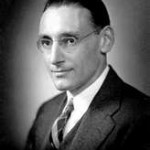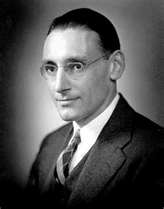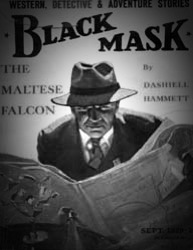
You gotta pity the poor souls who lived next door to guys like Hugh B. Cave. Typewriter keys hammering away around the clock, nonstop, for days on end, the sound often banging through cheap, paper-thin walls.
If you were creating a mood with someone from the fairer sex, then you might want to break a finger or two of the writer, and if you were nursing a hang-over, then no court in the land would call it homicide. Still the typing never stopped. It couldn’t. These guys made their living at two cents a word!
The golden age of pulp magazines were the twenties and the thirties, when the industrial revolution was in full throttle and literacy was at an all-time high in the US. Before World War II, and before television, the average Joe was hungry for things to read.
Multiple editions of newspapers were the norm, and breaking news called for special editions. Paper, especially cheap pulped paper, was plentiful, and speculative fiction was everywhere, even in big-named magazines like Ladies Home Journal and the Saturday Evening Post.
The real bread-and-butter for mystery and suspense stories, however, were the pulps, and this was where the writers of the day learned their stock in trade.
When most people think of the nickel pulps, they think of names like the Shadow or Buck Rodgers. The magazines went further back, and some of the finest writers of their generations cut their teeth there. Names like Edgar Rice Burroughs, Rudyard Kipling, Louis L’Amour, Ray Bradbury, and Sinclair Lewis all started out as two-cent-a-word writers and became canonized authors.
But for every genius-in-the-rough forged by the demands of cheap literature, there were a hundred more just trying to put food on their tables with Underwoods and Royals. The king of these was Hugh B. Cave.
Hugh B. Cave – The Early Years
Born Hugh Barnett Cave in England in 1910, Hugh’s family moved to Boston during the outbreak of World War I. He graduated high school and attended Boston University for two years before he was forced to leave, due to a severe injury suffered by his father, to help provide for his family.
His first job was at a vanity press where he dreamed of a life of adventure and writing. It didn’t take long for the dream to come true and he left the press after two years to become a freelance pulp writer.
Cave became a force in the writing community of his day, and by his own estimation, he published about 800 short stories in almost 100 different periodicals during the 1930’s alone, sometime under pseudonyms such as “Justin Case.”
His stories became the mainstays of magazines such as the Black Mask, Weird Tales, and Astounding, and one of his creations, a courageous and morally-ambiguous gent named the Eel, stared in stories publish from the late 30’s to the early 40’s.
He was also a source of inspiration and polarization to his fellow pulp writers. Although the two never met, he had many heated exchanges with fellow writer H.P. Lovecraft over the ethics of writing. He was also friend and confidant of Carl Richard Jacobi, a pulp author who lived all his life in Minneapolis.
Cave corresponded with Jacobi for most of his life, encouraging him as a writer and friend as well as sympathizing when declining markets and ill health impacted Jacobi’s work. Much of their correspondence can be found in the entertaining book Magazines I Remember, published in 1994.
Hugh B. Cave – War Correspondent
During WWII Cave was a war correspondent in the Pacific theater, where he produced one of his most highly regarded works, Long Were the Nights, a story of PT boats in Guadalcanal. During this time he produced many stories on the war in the Pacific, once again never letting the keys of his typewriter rest.
After the war, he spent five years living in Haiti, writing stories of Voodoo. From there he traveled to Jamaica, where he managed a coffee plantation while continuing to write adventure stories at a prodigious rate. He also married and became the father of two sons.
Hugh B. Cave passed away on June 27, 2004, in Florida, at the advanced age of 93, but you can still imagine his spirit shaking his head and having a chuckle anytime a blogger like me brags about a seven hundred word entry.

